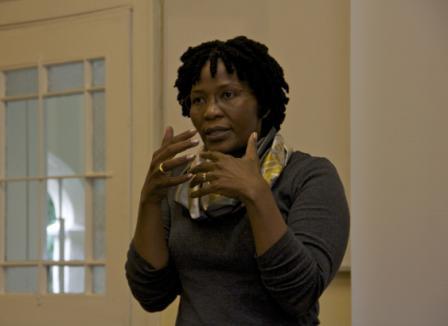
Independent analyst and gender activist, Ms Nomboniso Gasa said patriarchy domination is not treated in the same way like other forms of oppression in South Africa. She was addressing an audience at Rhodes University as part of the Lineages of Freedom series of critical conversations.
Delivering her lecture entitled: Patriarchy in current South African leadership: on-going gender question, she said that there are policies in place in South Africa to prevent patriarchy but they do not lead to action.
Despite the policies in place to prevent patriarchy domination in South Africa, political leaders continue to perpetuate gender oppression. “President Zuma is an embodiment of hyper-patriarchal and hyper-heterosexual figure.” When the president is hyper-patriarchal there is a spill-over of discrimination into other areas of community, she added.
“You can never have a State of The Nation (address), no matter how devoid of content, which does not talk about non-sexism and patriarchy,” she added. In fact the male and female bodies are not treated equally.
“There is shame that is associated with the female body,” she said. Giving prominence to males at the expense of females assume that humanity is constructed around patriarchy and everything else as the other. “Patriarchy domination in the world is seen as the norm and everything else as the other,” she added.
Ms Gasa said that there is an “incredible un-acceptance and inability to understand sexual violence and what it is about” by members of the South African government, referring to the sexual violence against lesbians.
To look at patriarchy as oppression that needs to change remains a “divisive matter” and that a new language was required to rescue South Africans from patriarchy, she said.
Ms Nomalanga Mkhize, who was the discussant, said that it was crucial to understand that language is a critical site of contestation with many influences. “What we need to do is to rescue African languages from the missionary influence and the modern insecure black man’s influence.”
Photo by Ross Shackleton
